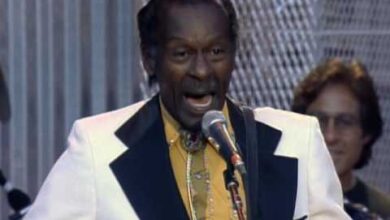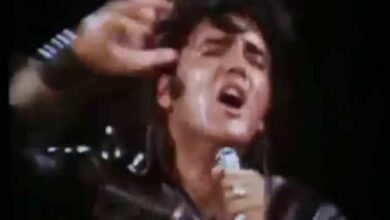From Heartache to Harmony: The Story Behind The Everly Brothers’ ‘Bye Bye Love’ and Its Lasting Legacy in Rock and Roll
In the mid-1950s, the American music scene was on the brink of a revolution, and two young brothers from Kentucky were about to play a pivotal role. Don and Phil Everly, known collectively as The Everly Brothers, hailed from a musical family deeply rooted in the traditions of country and folk music. Their father, Ike Everly, was a respected guitarist, and their mother, Margaret, contributed vocals, creating a rich musical environment that nurtured the boys’ talents from an early age.
The brothers’ journey into the limelight began in their childhood, performing alongside their parents on live radio shows in the 1940s. These early experiences not only honed their harmonizing skills but also instilled in them a deep appreciation for the power of live performance. As they matured, Don and Phil sought to carve out their own niche in the evolving music industry, blending their country roots with the burgeoning sounds of rock and roll.
In 1957, after a series of rejections and false starts, fate led them to Cadence Records, where they were introduced to a song that had been passed over by numerous artists. “Bye Bye Love,” penned by the husband-and-wife songwriting duo Felice and Boudleaux Bryant, was a catchy tune that resonated with the brothers’ sensibilities. Recognizing its potential, Don and Phil infused the song with their signature harmonies and a driving rhythm, creating a sound that was both fresh and familiar.
The recording session for “Bye Bye Love” was a turning point. Don’s innovative guitar intro, a distinctive riff that set the tone for the track, was a spontaneous addition that added a unique flair. This creative decision, combined with the brothers’ tight vocal harmonies, resulted in a recording that was both polished and emotionally resonant. Released in March 1957, the song quickly climbed the charts, reaching number two on the Billboard Hot 100 and solidifying The Everly Brothers’ place in music history.
The success of “Bye Bye Love” was not just a personal triumph for Don and Phil; it also marked a significant moment in the fusion of country and rock music. Their seamless blending of genres appealed to a broad audience, bridging the gap between traditional country fans and the younger rock and roll enthusiasts. This crossover appeal was instrumental in shaping the soundscape of the late 1950s and influencing countless artists who followed.
Following the breakthrough of “Bye Bye Love,” The Everly Brothers continued to collaborate with the Bryants, producing a string of hits that showcased their harmonious vocals and relatable lyrics. Songs like “Wake Up Little Susie” and “All I Have to Do Is Dream” became anthems of the era, each one reinforcing the brothers’ reputation as pioneers of a new musical movement.
Their influence extended beyond their own recordings. The Beatles, for instance, cited The Everly Brothers as a significant inspiration, particularly in their use of close harmonies. Paul McCartney and John Lennon even referred to themselves as the “British Everly Brothers” in their early days, a testament to the profound impact Don and Phil had on the next generation of musicians.
Despite their success, the brothers faced challenges, both professionally and personally. The pressures of fame, coupled with the demands of constant touring and recording, took a toll on their relationship. Tensions arose, leading to a temporary split in the early 1970s. However, their bond proved resilient, and they reunited in 1983, returning to the stage with renewed vigor and reminding audiences of the timeless quality of their music.
The legacy of “Bye Bye Love” endures, not only as a milestone in The Everly Brothers’ career but also as a cornerstone in the foundation of rock and roll. Its infectious melody and heartfelt lyrics continue to resonate with listeners, a testament to the universal themes of love and loss that it so eloquently captures. The song’s enduring popularity is a reflection of its ability to transcend time, appealing to successive generations of music lovers.
In the grand tapestry of American music, The Everly Brothers hold a special place. Their innovative fusion of genres, coupled with their impeccable harmonies, set a standard that many have aspired to but few have achieved. “Bye Bye Love” stands as a testament to their artistry, a song that not only defined an era but also left an indelible mark on the cultural landscape.
As we reflect on the journey of Don and Phil Everly, it’s clear that their contributions extend far beyond their impressive catalog of hits. They played a pivotal role in shaping the sound of modern music, influencing countless artists and leaving a legacy that continues to inspire. Their story is one of talent, perseverance, and a deep-seated passion for their craft, qualities that are evident in every note they sang.
Today, “Bye Bye Love” remains a staple on classic rock and oldies playlists, its enduring appeal a testament to its timelessness. The song’s simple yet profound message, delivered through the harmonious blend of the Everly Brothers’ voices, continues to strike a chord with listeners young and old. It’s a reminder of a bygone era, yet its relevance remains undiminished, a true classic in every sense of the word.
In the annals of music history, few songs have achieved the iconic status of “Bye Bye Love.” Its success not only catapulted The Everly Brothers to stardom but also paved the way for future artists to explore and blend genres. The song’s legacy is a testament to the brothers’ innovative spirit and their ability to connect with audiences on a deeply emotional level.
As we listen to “Bye Bye Love” today, we’re transported back to a time when music was undergoing a transformative shift, and The Everly Brothers were at the forefront of that change. Their harmonious voices and heartfelt lyrics continue to resonate, a lasting reminder of their contribution to the world of music. The song stands as a beacon of their enduring legacy, a timeless piece that will continue to captivate audiences for generations to come.



